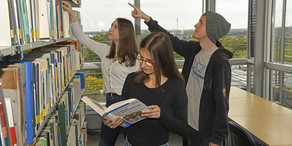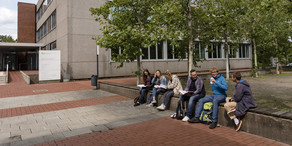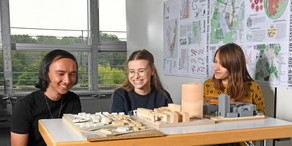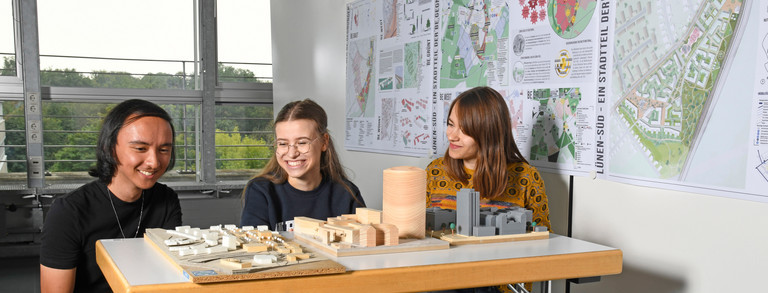Bachelor of Science
The interdisciplinary degree program Bachelor in Spatial Planning deals with the development of living, working and environmental conditions from village, urban and regional areas to entire countries and to international levels. Aim is to be able to develop and implement solution strategies for a wide range of spatial problems. Current issues, such as climate change, housing shortages and demographic change are particularly important.
The eight-semester Bachelor of Science program includes various projects, urban studio designs, lectures, seminars and exercises. In addition to theoretical knowledge, practical skills such as CAD and GIS are taught and social such as moderation and organisational skills are developed.
Why study Spatial Planning at TU Dortmund University?
The Department of Spatial Planning at TU Dortmund University is the largest planning science department in Europe and has the largest number of departments. Accordingly, the degree program is highly interdisciplinary and enables students to develop skills in line with their interests. The Bachelor's degree program in Spatial Planning also stands out due to its projects and designs. In addition to the key competences of group work, they also teach self-motivated, independent and cooperative work and develop scientific and application-oriented skills. Students are therefore prepared intensively for professional life in the fields of spatial planning.
Fields of employment and professions
Spatial planners work at all spatial planning levels – from the residential environment to regional and international levels. Graduates are able to work in a wide range of professional fields, which can range from the public sector, e.g. in municipal administrations or district governments, to private companies, e.g. planning offices or housing companies, to associations, federations and non-governmental organisations.
Here a some examples:
- Urban planning, urban development and urban land-use planning
- Urban regeneration and urban redevelopment
- Strategic urban and regional development
- Spatial planning and regional planning
- Transport planning, landscape planning
- Environmental planning, climate adaptation
- Renewable energies
- Political and economic consulting
- Housing supply and property management
- Participation processes and moderation
Short Portrait
| Degree | Bachelor of Science |
| Standard Study Period | 8 semesters |
| Credit Points | 240 ECTS |
| Language of Tuition | German |
| Start of Study | Every Winter Term |
| Admission Requirement | Higher Education Entrance Qualification or Higher Education Entrance Qualification ( § 49 Higher Education Act) |
| Admission Restriction | Local NC You can find information on the figures for recent years here: NC-Verfahren aktuell |
| Application for the NC Procedure | Dialogue-Oriented Service Procedure (DoSV) via hochschulstart.de by July 15th |
| Application for International Applicants | Information on the special admission regulations can be found at the Registrar´s Office and at the International Office |
| Application for Professionally Qualified | Information on the special admission regulations can be found here (https://www.tu-dortmund.de/en/prospective-students/application-and-enrollment/study-without-university-entrance-qualification-abitur/) |
| Application for Advanced Semesters | Sufficient recognition of credit points from other degree programmes is mandatory. The examination board of the Department of Spatial Planning will carry out the examination. To do this, please send an email to pa.rptu-dortmundde with proof of your examination achievements. |
| Semester Contribution | Information on the semester contributions can be found here: Re-Registration and Semester Contribution |









